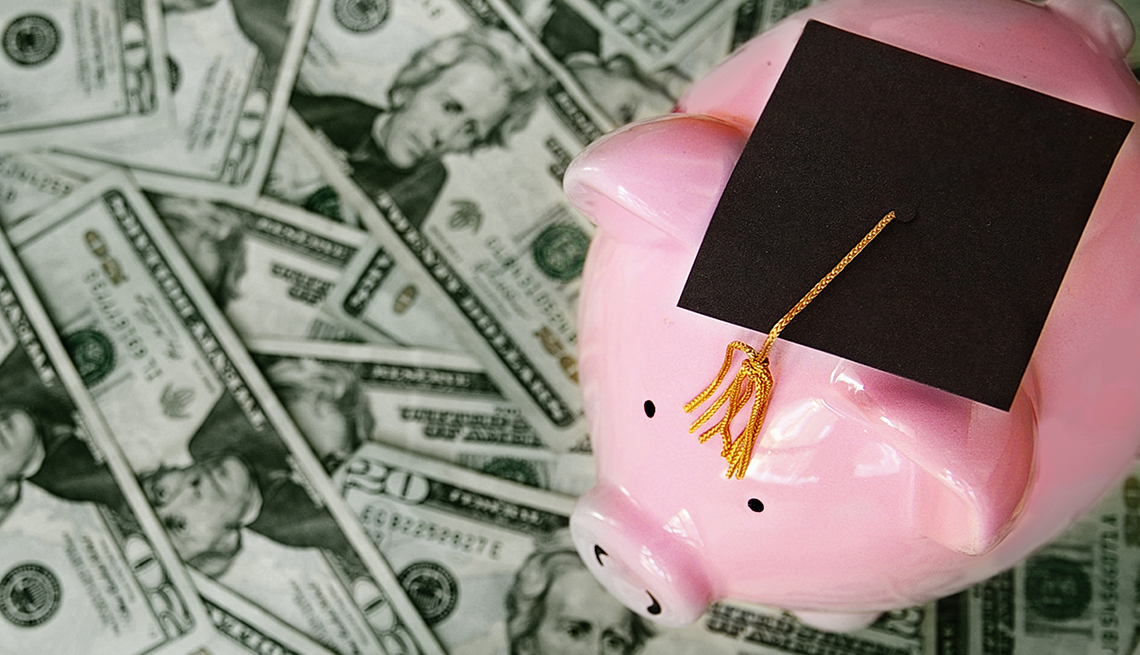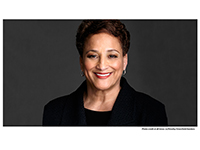Student Loan Debt Is Crippling Too Many Families
People 50+ make up 20 percent of Americans still paying for an education
En español | A college education is still seen as the path to fulfilling dreams in America. But it isn’t just our grandchildren and children struggling to repay the loans acquired in pursuit of those dreams. Money borrowed while chasing a diploma also threatens to crush the financial security of millions of Americans over age 50.
The AARP Bulletin published an extensive report on student loan debt in March. It documented the hopelessness and despair many feel as they struggle to make payments. Now, the AARP Public Policy Institute (PPI) has published some eye-opening research illustrating the breadth of the problem. Over the past 15 years, student loan debt has more than tripled, from $455.2 billion in 2004 to $1.5 trillion as of December 2018 — and the increase has been greatest among older borrowers. People 50 and older account for 20 percent of the total student loan debt, or $289.5 billion. That’s a fivefold increase since 2004, and it reflects both a sharp rise in the number of families borrowing and the amount they borrow.
Over the past three decades, the cost of attending a four-year college has more than doubled, even after adjusting for inflation, as state and local funding for higher education per student has decreased. Family incomes haven’t come close to matching that increase.
Still, college is seen by many as an important goal. So, in some families, parents, grandparents and other relatives take on debt to help finance a family member’s education, either by taking out loans directly or cosigning loans.
While some older Americans go into debt for children or grandchildren, others are still struggling to pay for their own education. In many cases, they never dug out from under loans taken out decades ago to pay for college. Others reach a point in their lives where they want to do something different with their careers while there is still time. Or they’re forced to go into a different field because they can’t find a job. So they go back to school, relying on student loans to help finance their new dreams.
That has left nearly 1 family in 10 headed by someone age 50-plus carrying some student loan debt — with an average balance of more than $33,000. Not surprisingly, defaults on student loans increase with the age of the borrower. This can have serious consequences for older Americans. The federal government can take a number of steps to collect from those who default on federal student loans, among them taking a portion of federal or state income tax refunds, withholding a percentage of Social Security retirement or disability benefits, or garnishing some of the borrower’s wages.
Young people today are on a path to growing old without gaining financial solvency. Carrying large amounts of student loan debt hampers their ability to save and build wealth. Repayment periods are now often 20 to 25 years — nearly double what they were a generation ago.
At AARP, we believe access to affordable higher education is more important than ever for people of all ages. Young people need to be trained to meet the enormous challenges of the future. And older people need flexibility to go back to school to pursue a different career without ending up on the road to financial ruin.
There are no simple solutions to this mess, which has accumulated over decades.
Our PPI report urges policy makers in Washington and at the state level to increase public investment in colleges and universities. And it says that under no circumstances should the critical lifeline of Social Security be threatened to collect on student loan debt. We all need to understand this critical problem. To learn more, read the PPI report at aarp.org/studentdebt.


